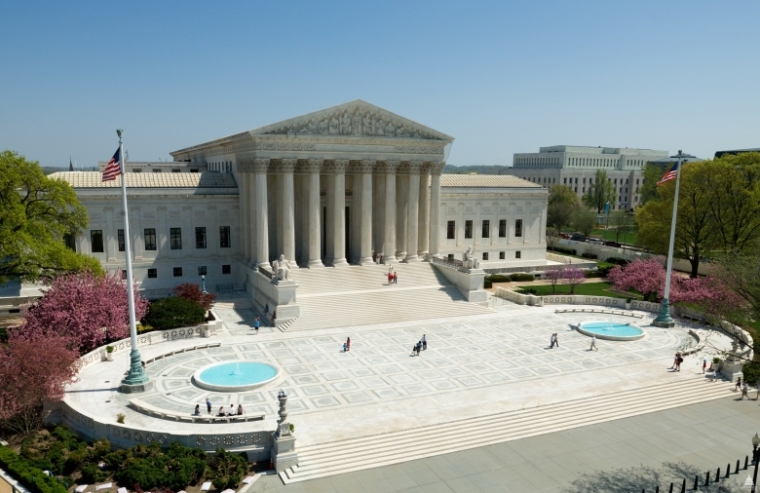Supreme Court may take up same-sex marriage cases

WASHINGTON -- The nine justices of the Supreme Court, who opted in October not to take up the issue of state bans of same-sex marriages, are set to meet behind closed doors on Friday to consider once again whether to hear any cases on the contentious issue.
There are five pending petitions concerning same-sex marriage prohibitions in Ohio, Tennessee, Michigan, Kentucky and Louisiana.
The competing legal issues are voter approved bans on same-sex marriage (essentially states' rights to regulate such unions under the powers enumerated in the 10th Amendment) and an individual's right to marry (as a function of the equal protection clause in the 14th Amendment).
An announcement could be made as soon as Friday after the justices meet as part of their customary private deliberations over which new cases to hear.
The previous decision not to consider seven pending cases had huge legal implications because it let stand lower court decisions that overturned voter approved same-sex marriage bans. Before that action, same-sex marriages were only legal in 19 states. Now it is legal in 36.
A Nov. 6 decision by the Cincinnati-based 6th U.S. Circuit Court of Appeals that upheld voter approved amendments in Kentucky, Michigan, Ohio and Tennessee that defined marriage as between a man and a woman, may increase pressure on the Supreme Court to take up the matter. It was the first of the nation's regional federal appeals courts to uphold traditional marriage. All of the lower federal court rulings have followed the majority political makeup of the judicial appointees.
In 2013, the Supreme Court struck down the federal marriage law, the Defense of Marriage Act, on the narrow basis that the federal law was an "unprecedented intrusion into the States' authority over domestic relations," but the decision did not address the validity of state marriage laws. That majority opinion was written by Justice Anthony Kennedy, who is seen as the deciding vote in close cases on liberal/conservative issues. Historically, his decisions tend to favor homosexual rights.
Separately on Friday, a federal appeals court in New Orleans is due to hear oral arguments over same-sex marriage bans in Texas, Louisiana and Mississippi.